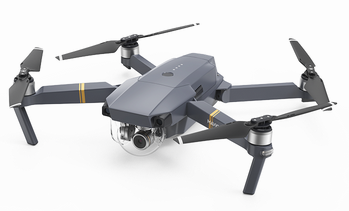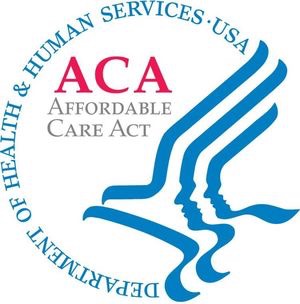How much more inconvenient can they make it?

My flying camera takes amazing still and video photos.
Regular readers of this blog might know that I bought a Mavic Pro flying camera back in January 2017. Before spending the money, I did my homework on FAR Part 107, which sets forth rules and regulations for commercial sUAS (small Unmanned Aerial Systems, AKA drones) operations. The certification process was pretty simple for existing pilots: study the rules, take an online training course, pass the test at the end of the course, and submit an application to the FAA for the sUAS rating to be added to my existing pilot certificate. I did all of this on December 20, 2016.
I fully expected to get some kind of correspondence from the FAA in the mail. Although some of my mail was forwarded to me while I was traveling this winter, not all of it was. Still, I didn’t get anything from the FAA for this in my forwarded mail or the mail held for me at home. Nothing.
Yesterday, I revisited the process, certain that I had neglected to do something. I followed the trail of multiple websites to find the place where I had filled in my application. I logged in and reviewed the application, which was dated 12/20/16 with a status of “Submitted by Applicant.” There were no additional instructions or useful information to tell me what I needed to do next or whether my application was even being processed.
I made four phone calls. Eventually, I got a guy at the FAA’s Spokane FSDO (Flight Standards District Office). For those of you unfamiliar with that kind of FAA office, its basically a regional office handling local FAA matters like aircraft and pilot certifications and airport operations. He told me that all I had to do was take my printed application to the FSDO and have someone there check my ID. They could then print out a certificate.
I wasn’t sure I’d heard him right. I had to drive to Spokane — which is 3 hours away by car — and show my driver’s license to someone in the office to prove I was who I said I was? So I’d need to spend six hours of my day, plus whatever time it took in Spokane, just to verify my identity?
Yep. Or I could go to the Seattle FSDO in Renton, WA (also 3 hours each way). Or the Portland FSDO in Hillsboro, OR (5-1/2 hour each way).
Of course, if I knew a DPE (Designated Pilot Examiner) who was closer, I could pay him to verify my identity and let him submit the paperwork. Although the FAA guy didn’t say this, I knew what would happen next: the paperwork would disappear into a black hole at the FAA for another three months.
As you might imagine, this completely floors me. In the past few years, I have made numerous very large banking and real estate transactions, each of which required positive identification, entirely via the Internet. Hangar sale, house sale, land sale, loan applications, wire transfers. Transactions worth hundreds of thousands of dollars in total, all requiring that I be identified before completing the transaction.
Why is it that the banks and title companies I worked with were able to verify my identity online when the FAA — which already has the name, address, phone number, and social security number associated with my existing pilot certificate — can’t?

Want to become a commercial drone pilot? Start by learning all about the FAA’s Part 107. This book will help. Buy the ebook edition on Amazon or from Apple. Or buy the paperback edition on Amazon.
Apparently, it’s because the FAA treats this as a brand new pilot certificate instead of an add-on rating. It doesn’t matter that they know who I am because they meet up with me at least once a year for my Part 135 certificate. I still have to jump through this ridiculous and meaningless hoop.
Just to get a piece of paper to make my commercial drone pilot operations legal. In the meantime, hundreds, if not thousands, of drone pilots are out there doing the same kind of work that I want to do without any kind of certification. Heck, I’m willing to bet that at least half of them haven’t even bothered to register their drones.
Is there any wonder why people break the rules? Could it be because the rules are ridiculous and cumbersome to follow?
So today I’ll pull my little Honda out of the garage. I’ll gas it up in town and hit the highway. I’ll drive all the way to Spokane and visit the fine folks in the FSDO there. They’ll look at my license and they’ll check a few boxes on the form I’ve printed out for their convenience. Then they’ll go into a back room and punch some keys on a computer keyboard. Moments later, a piece of paper — my temporary certificate, I guess? — will come out of a printer. They’ll hand it to me and I’ll begin the long drive back home, stopping for gas again along the way.
A whole day of my time blown.
In a few weeks (or months?), I’ll get a new plastic card from the FAA’s main office in Oklahoma. I’ll slip it in to my wallet with my existing pilot certificate — another card to carry around all the time.
But at least I’ll be legal to do commercial drone photography. That’s a lot more than I can say about a lot of the other drone pilots out there.

 The same goes for my friend. If he didn’t have that big garage, could he rent out space to boat owners? No. What did it cost him to build that garage? Maintain it? Insure it? All that costs money.
The same goes for my friend. If he didn’t have that big garage, could he rent out space to boat owners? No. What did it cost him to build that garage? Maintain it? Insure it? All that costs money. The ACA made it easier to shop for insurance by setting up a marketplace. It prevented insurers from denying coverage or setting unreasonable rates for people with pre-existing conditions. It required insurers to provide a list of basic coverages that a person might need. It covered, at no additional cost to insured people, annual well-care visits to help prevent illnesses or to catch them before they became serious problems. It required more employers to offer health care benefits to employees. It encouraged everyone to get health insurance coverage to increase the pool of insured individuals, thus reducing the overall cost of coverage for each of us. It prevented insurers from taking obscene profits on healthcare coverage by setting maximum profit levels that actually refunded premiums to customers. These are all benefits that help those of us who don’t work for big companies that offer health insurance in a benefits package.
The ACA made it easier to shop for insurance by setting up a marketplace. It prevented insurers from denying coverage or setting unreasonable rates for people with pre-existing conditions. It required insurers to provide a list of basic coverages that a person might need. It covered, at no additional cost to insured people, annual well-care visits to help prevent illnesses or to catch them before they became serious problems. It required more employers to offer health care benefits to employees. It encouraged everyone to get health insurance coverage to increase the pool of insured individuals, thus reducing the overall cost of coverage for each of us. It prevented insurers from taking obscene profits on healthcare coverage by setting maximum profit levels that actually refunded premiums to customers. These are all benefits that help those of us who don’t work for big companies that offer health insurance in a benefits package.